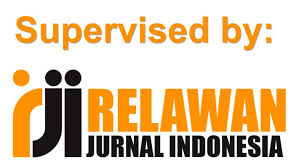Integration of Science and Religion in the Methodology of Holmes Rolston's Philosophy
DOI:
https://doi.org/10.37092/el-ghiroh.v22i1.725Keywords:
Integration of Science and Religion, Holmes Rolston PhilosophyAbstract
The viewpoint that talks about religion and science is not a subject that will run out with the times. This is because the connection between the two fills space and time, and it is interesting to study and accelerate the correlation between the two clearly. In fact, these studies need to be developed in a concentrated manner among scholars, especially academics in universities. The basis of the correlation between the two is to provide reinforcement that science and religion/theology are two sides of a coin that are interrelated to explain each other between the levels of belief and rationality. Moreover, this answer, on the other hand, makes the assumption that science and religion cannot be united. Based on this description, we will try to think about how scientific integration between religion and science is not dichotomized with its own scientific building. As seen in Holmes Rolston's philosophical methodology, which seeks to explain the correlation between the study of theology and science, In his view, theology, or religion, and science can clearly grow and develop together, and there is even certainty of complementarity between them. By using the writing rules of a qualitative approach through a literature study or library research, this research seeks to upload Holmes Rolston's views regarding the integration of science and religion/theology. Because, in his view, religion and science are a response to the cyclotomy that seeks to answer that between the two is able to meet and complement from a methodology.
Downloads
References
Absori, et. al. (2018). Pemikiran Hukum Profetik, Ragam Paradigma Menuju Hukum Berketuhanan. Ruas Media.
Achmad Baiquni. (1994). Al Qur’an: Ilmu Pengetahuan dan Teknologi. Dana Bhakti Prima Yasa.
Apriyansyah, D., Novianto, E., & Rahmat Hidayat. (2022). Relevansi Pendidikan Akhlak Terhadap Pengintegrasian Nilai Moral Pada Pendidikan Non Formal. 4(1), 8–15.
Arfan Nusi. (2020). Dikotomi Pendidikan Islam dan Umum: Telaah Pemikiran Integrasi-Interkoneksi M. Amin Abdullah. Irfani, 16(2), 27–40. http://journal.iaingorontalo.ac.id/index.php/ir
Armahedi Mahzar. (2004). Revolusi Integralisme Islam Merumuskan Paradigma Sains dan Tekhnologi Islami. Mizan.
Azman, Z. (2023). Rumpun Ilmu Pengetahuan Sosial Dalam Perspektif Islam Dan Barat. ’El-Ghiroh, 21(2), 185–203. https://doi.org/10.37092/el-ghiroh.v21i2.631
B Hendrianto. (2019). Islamisasi Sains: Sebuah Upaya Mengislamkan Sains Barat Modern. Pustaka al-Kautsar.
Gade, F. (2021). Orientasi Sains dan Islamisasi Ilmu Pengetahuan.
Hidayat, Muhammad Sofian Tsaqib, M. A. (2022). Prinsip Eror Elimination dan Pergeseran Paradigma Dalam Perkembangan Ilmu Pengetahuan. Jurnal Penelitian Medan Agama, 13(2), 80. https://doi.org/10.58836/jpma.v13i2.13407
Hidayatullah, S. (2019). Agama dan Sains: Sebuah Kajian Tentang Relasi dan Metodologi. Jurnal Filsafat, 29(1), 102–133. https://doi.org/10.22146/jf.30246
Holmes Rolston. (2005). Encyclopedia of Religion and Nature. Thoemmes Continuum Publishers. https://id.wikipedia.org/w/index.php?title=Holmes_Rolston_III&oldid=20877725
Holmes Rolston III. (2006a). Science and Religion; A Critical Survey. Templeton Foundation Press.
Holmes Rolston III. (2006b). Science and Religion: a Critical Survey. Templeton Foundation Press.
Humaidi. (2015). Paradigma Sains Integratif Al Farabi; Pendasaran Filosofis bagi Relasi Sains, Filsafat dan Agama. Sadra Press.
Ismail Raji al Faruqi. (1984). Islamization of Knowledge General Principles and Work Plann (Terj. Isla). Pustaka.
Kelik Wardiono. (2016). Paradigma Profetik; Pembaruan Basis Epistimologi Ilmu Hukum. Genta Publishing.
Maksudin. (2013). Pendidikan Karakter Non-Dikotomik. Pustaka Pelajar.
Mardalis. (1995). Metode Penelitian; Suatu Pendekatan Proposal. Bumi Aksara.
Mohammad Muslih. (2017). Falsafah Sains; Dari Isu Integrasi Keilmuan Menuju Lahirnya Sains Teistik. LESFI.
Mufidah, M., & Tamrin, A. (2022). Pengembangan Ilmu Hukum Profetik Sebagai Model Integrasi Keilmuan Fakultas Syariah dan Hukum di PTKIN. SALAM: Jurnal Sosial Dan Budaya Syar-I, 9(2), 503–520. https://doi.org/10.15408/sjsbs.v9i2.25539
Muhammad Fahmi. (2013). Tantangan Interkoneksi Sains dan Agama di IAIN Sunan Ampel. Pendidikan Agama Islam2, 2(2), 320–337.
Muhammad Muslich. (2004). Filsafat Ilmu Kajian Atas Asumsi Dasar Paradigma dan Kerangka Teori Ilmu Pengetahuan (Printing 1). Blukar. https://inlis.malangkota.go.id/opac/detail-opac?id=18123
Muslih. (2021). Relasi Agama dan Sains dalam Pendidikan Islam. Nawa Litera Publishing.
Muslih, M., Himaya, N. N., & Masturoh, F. (2023). Integrasi Agama dan Sains: Telaah Pemikiran Holmes Rolston. Risalah: Jurnal Pendidikan Dan Studi Islam, 9(1), 151–160. https://jurnal.faiunwir.ac.id
Nugroho, I. (2016). Positivisme Auguste Comte: Analisa Epistemologis Dan Nilai Etisnya Terhadap Sains. Cakrawala: Jurnal Studi Islam, 11(2), 167–177. https://doi.org/10.31603/cakrawala.v11i2.192
Nuraini Asriati. (2012). Mengembangkan Karakter Peserta Didik Berbasis Kearifan Lokal Melalui Pembelajaran di Sekolah. Jurnal Pendidikan Sosiologi Dan Humaniora, 3(2), 106–119.
Rifqi Aulia Rahman. (2021). Menyoroti Metode Penyelidikan Sains dan Agama Rolston Holmes III. Menara Quran; Jurnal Studi Islam, 21(2), 149–164. https://ojs.unsiq.ac.id/index.php/mq/article/view/1534/1401
Riski, M. A. (2021). Teori Falsifikasi Karl Raimund Popper: Urgensi Pemikirannya dalam Dunia Akademik. Jurnal Filsafat Indonesia, 4(3), 261–272.
Sopiyan, W., Hidayat, R. H., Setiawati, R., & Hadi, F. N. (2022). Integrasi Sosial Dalam Masyarakat Beragama Sebagai Mediasi Konflik Sosial. El-Ghiroh, 20(02), 219–234. https://doi.org/10.37092/el-ghiroh.v20i02.381
Sunardin, S. (2021). Manusia Membutuhkan Agama di Masyarakat. Misykat Al-Anwar Jurnal Kajian Islam Dan Masyarakat, 4(1), 1. https://doi.org/10.24853/ma.4.1.1-18
Taqiyuddin, M. (2021). Hubungan Islam dan Sains: Tawaran Syed Muhammad Naquib Al-Attas. Islamadina?: Jurnal Pemikiran Islam, 22(1), 81. https://doi.org/10.30595/islamadina.v22i1.7216
van den Brink, G. (2019). How Theology Stopped Being Regina Scientiarum—and How Its Story Continues. Studies in Christian Ethics, 32(4), 442–454. https://doi.org/10.1177/0953946819868092
Yacintha Pertiwi dan Moch. Iqbal. (2022). Rekayasa Genetika Dalam Integrasi Islam Dan Sains Modern. Jurnal Pendidikan Dan Studi Islam, 8(2), 807–825. https://doi.org/10.31943/jurnalrisalah.v8i2.279
Yogiswari, K. S. (2020). Komparasi Pandangan Filsafat Agama Albert Einstein dan Holmes Rolston III. Sanjiwani: Jurnal Filsafat, 9(1), 53. https://doi.org/10.25078/sjf.v9i1.1612
Zarkasyi, H. F., & Rachmawati, F. (2020). Kontribusi Cendekiawan Muslim dalam Membangun Peradaban Islam. Tasfiyah, 4(2), 67. https://doi.org/10.21111/tasfiyah.v4i2.4110










